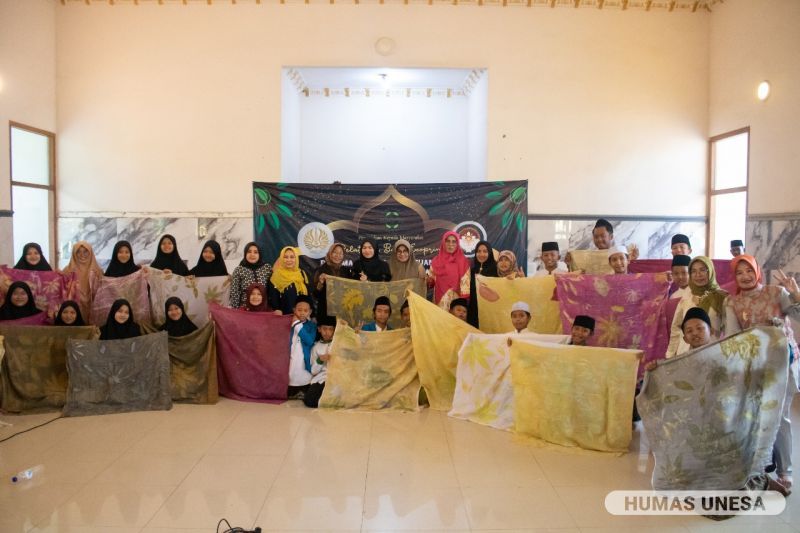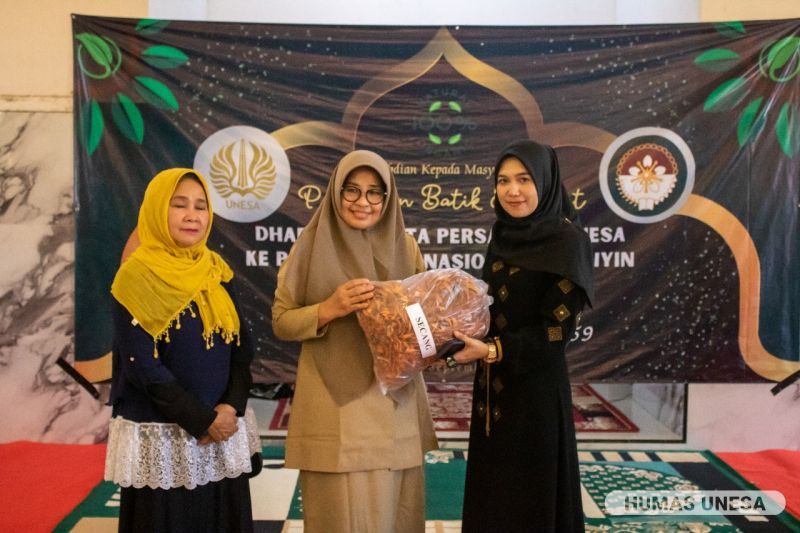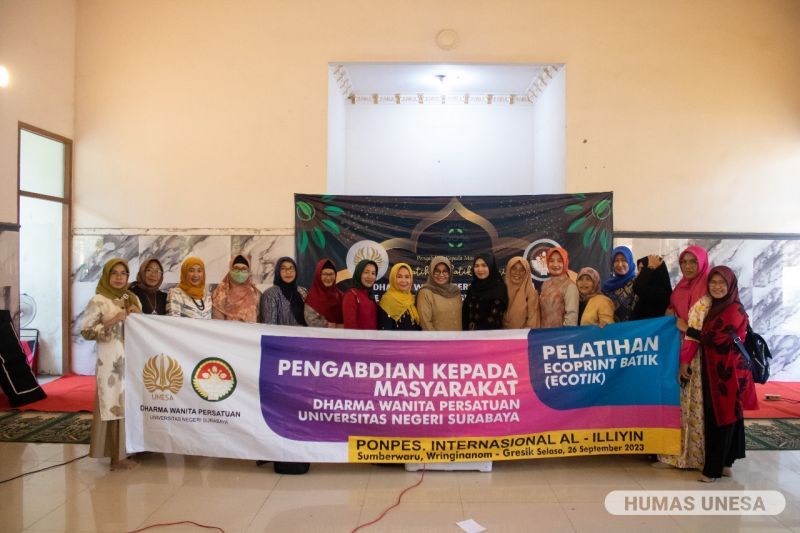
www.unesa.ac.id
Unesa.ac.id, SURABAYA—Dharma Wanita Perempuan (DWP) Surabaya State University (UNESA) continues to intensify positive and beneficial activities for the surrounding community. Most recently, they carried out community service in the form of training in making ecoprint batik at the Al-Illiyin International Islamic Boarding School, Wringinanom, Gresik on Tuesday, September 26 2023.
DWP led by Dra. Endah Purnomowati Nurhasan, M.Pd., also invited the Chair of the UNESA DWP and the ecoprint team. The arrival of the DWP group was warmly welcomed by the Al-Illiyin International Islamic Boarding School staff.
Ustadz Arif Lukman Hakim, administrator of the Al-Illiyin International Islamic Boarding School, expressed his gratitude for the arrival of the UNESA DWP group to provide various knowledge to the students.
"Thank you for coming and sharing your knowledge with all of us. God willing, it will be useful and hopefully this training will not only be enough, but can continue with other activities," he said.
Endah Purnomowati Nurhasan, Chair of the UNESA DWP, fully supports this activity. Because, this training activity is a form of environmentally friendly creativity. This ecoprint can provide skills and increase competency for students.
"The skill of making ecoprint batik starts from something as simple as the hijab. Later it can be developed to be more diverse. It can be made into clothes, pottery, bags, etc. Students will get knowledge capital in the process of making it so that they can regularly take advantage of this knowledge," he said.

www.unesa.ac.id
This training activity involved 60 Islamic boarding school students and female students who were directly accompanied by the Batik Ecoprint team and DWP UNESA. Making ecoprint batik takes 2.5 hours using various complementary materials that come from nature. Such as dyes made from tegeran, tingi, secang and jalawe plants which produce unique natural colors.
The process of making ecoprint batik has 3 stages, namely. First, pre-mordanting, is a chemical removal process by boiling the fabric in tro solution for 1 hour and then leaving it to cool and air.
Secondly, mordanting, is the process of boiling cloth using alum/soda ash and vinegar. Then the cloth is allowed to dry without being exposed to sunlight. Third, post-mordant, is a process of processing fabric using various ecoprint techniques and soaking using a solution of tunjung and lime.
The head of the Ecoprint Batik team, Fitriya, said that the mordanting process is the main key to the success of making ecoprint batik. The series of processes in mordanting starting from pre-mordanting, mordanting, and post-mordanting must be carried out sequentially, must not be reversed or any processes left out.
"The mordanting process must be carried out correctly so that the chemicals dissolve and the pores in the fabric open perfectly. So, the fabric is able to absorb color and produce beautiful ecoprint batik," he explained.
After the ecoprint batik production is complete, it takes 2 hours for the steaming process. This steaming aims to allow the color contained in the plant to come out and stick to the fabric. During the steaming process, female students actively asked questions to the ecoprint team to find out more about environmentally friendly fabric processing.

www.unesa.ac.id
Before the closing, DWP UNESA handed over tools and materials for making ecoprint batik to be used by students so they could share the knowledge they had gained with other students.
"We hope that with this training, the students can develop themselves into bigger things. Hopefully it can broaden the students' insight and can have extraordinary competence," concluded Fitriya. [*]
***
Reporter: Hiline Wijayanti
Editor: @zam Alasiah*
Photo: Public Relations Team Documentation < /p>
Share It On:






